By Russtum G. Pelima
ALABEL, Sarangani (August 4, 2009) – Former Trade Secretary Cesar Purisima has praised Sarangani’s initiatives in investment and tourism as he graced the culmination program Friday (July 31) of the province’s extended version of the national Small and Medium Enterprise Development (SMED) week.
Businessmen in the region with sponsors from Luzon attended the SMED’s United towards Strong, Wealthy And Globally Competitive (USWAG) Sarangani’s business conference hosted by the provincial office of Department of Trade and Industry (DTI).
“Napakaganda ng probinsya ng Sarangani (Sarangani province is very beautiful),” Purisima said. “Here you have tourism, rich soil, and culture as your biggest opportunities.”
With the province’s white sand beaches, world-class dive sites, waterfalls and eco-cultural destinations, Purisima said Sarangani “will soon be positioned to compete tourism in Asia.”
“Your handicraft products from abaca and coconuts can now reach the markets because of infrastructural development and power generation,” Purisima added.
Officials of Conal Holdings Corporation, proponent of the P21-billion coal-fired power plant in Maasim town, were present in the conference
It is a joint project by the Alsons Group of Companies and EGCO Group of Thailand.
Project manager Gregorio Gonzales said Philippine laws on environmental protection specially on pollution control and mitigation will be followed by the project called SM200. He added massive education and information campaign was being done by the corporation to the communities.
Conal Holdings Corporation also allocated a P2-million fund per year for the protection and conservation of Sarangani Bay aside from its “no water from and into the bay” policy.
The project would fill the power supply gap projected in 2012 and help stabilize the Mindanao Grid thus enable the various industrial projects to operate, making Southern Mindanao less susceptible to line disturbances.
Gonzales also said because the coal power plant has a cheaper generating cost, it makes substantial savings for the consumers.
Purisima encouraged small and medium entrepreneurs to “specialize” and identify their unique products particularly in agro-industrial businesses.
“We need entrepreneurs. They are our engines of growth,” he said. “Let us encourage them for a small banking system to start a business, and have more interactions with them like what we are doing today.”
Sarangani’s existing major industries are aquaculture with Alsons Aquaculture Corporation’s annual production of 7,081 metric tons (MT) of aquaculture products. The company produces 780 million fry bangus and various fin fish.
The annual 3,000 aqua products in Sarangani has 66% exportation, resource-based manufacturing like coco coir has 1,516 MT production for export to China, Japan and other countries, and 175 metric tons of abaca- based products.
In plantation agriculture, Sarangani produces pineapple – 36,563 MT, banana – 91,236 MT, coconut – 353,187 MT, mango – 15,017 MT, and sugarcane – 68,800 MT.
Sarangani has its major investment opportunities in agro-industrial, aqua-marine, and forestry such as high value crop production, industrial crops and tree plantation, high value fin fish production and processing, deep-sea fishing, and livestock production and processing.
The towns of Alabel, Malapatan and Malungon are the province’s developing mini-growth network for agri-business.
For tourism development, Sarangani white sand beaches in Gumasa are excellent locations for hotel and restaurant development, resorts, entertainment and recreational facilities, health and wellness facilities, adventure and wildlife parks, retirement camps, tourism support services such as transport and travel and tours operators.
Sarangani also develops its farm to market roads, port zones, water and sewerage systems, and post-harvest facilities.
In June, committees in the House of Representatives and the Senate had accepted for committee hearings the institutionalization of the Maasim-Kiamba-Maitum Industrial Triangle or MAKIMA- IT, an inter-local government cooperation aimed at harmonizing and integrating the development plans of the three towns.
MAKIMA-IT is a public-private sector partnership with the local governments taking lead and the local private sector as the engine of growth.
Sarangani created the Tourism and Investment Promotion Center (STIPC) as the province’s agency in promoting the province as an ideal tourism and investment destination of Southern Philippines. STIPC caters the needs of investors by providing extensive range of services that will create the most favorable business environment. (SARANGANI INFORMATION OFFICE)
Subscribe to:
Post Comments (Atom)

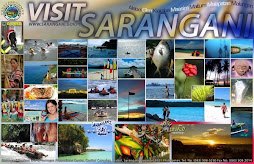


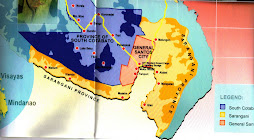

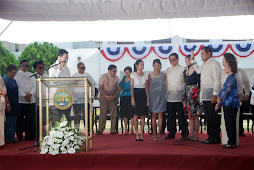
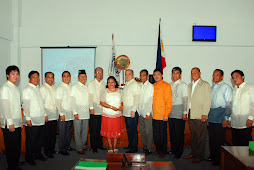

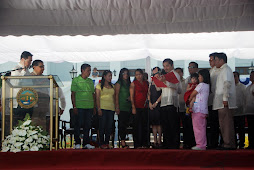
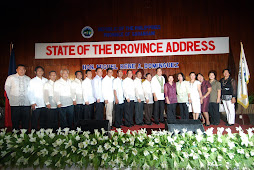
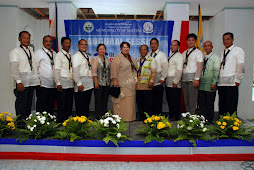
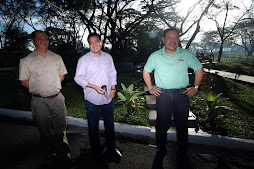



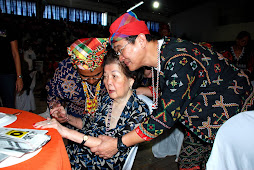


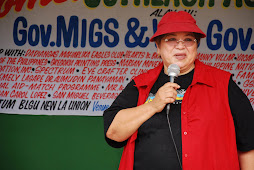
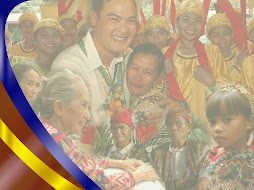
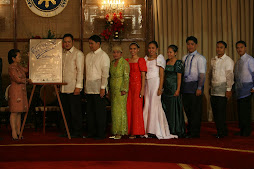
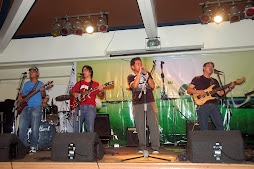


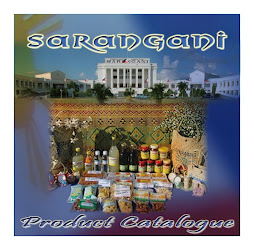

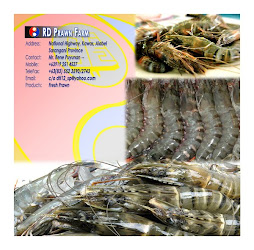
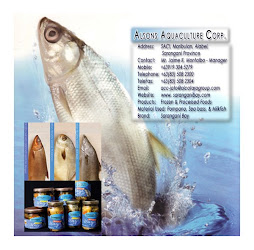
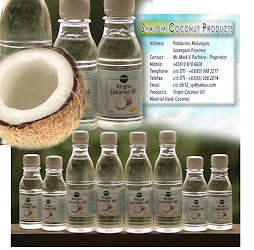

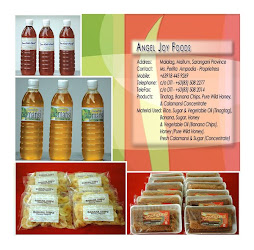
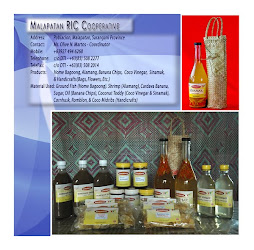

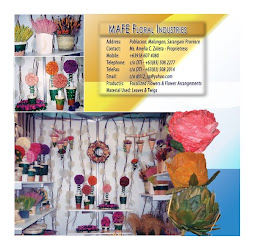
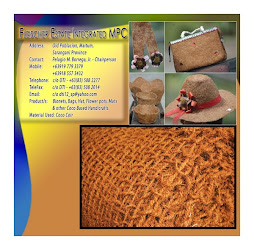
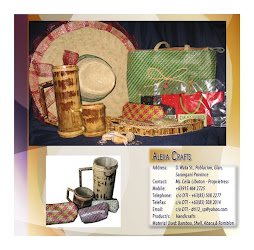
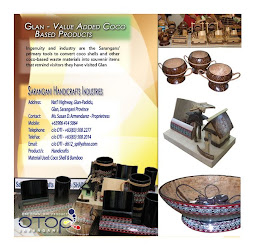
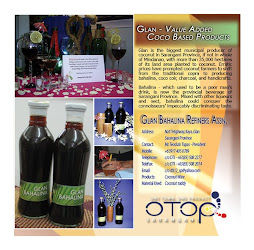
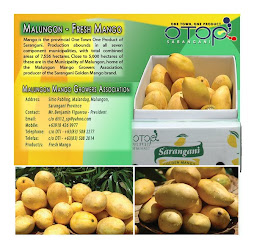
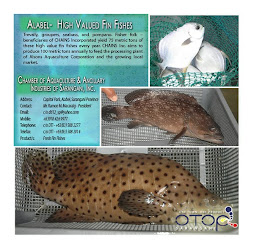
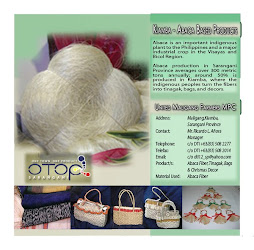

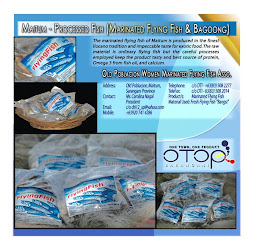
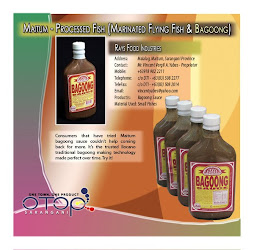
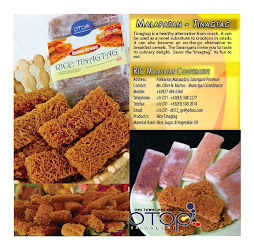
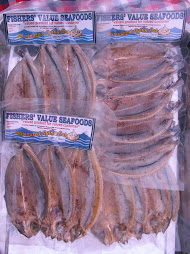
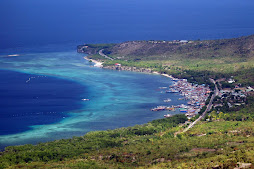
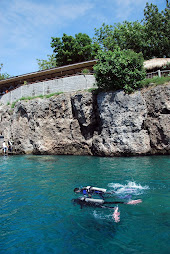
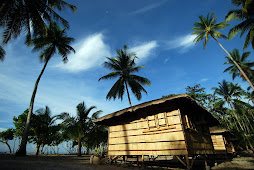
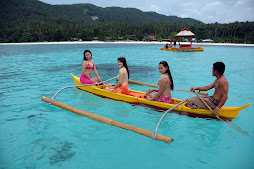

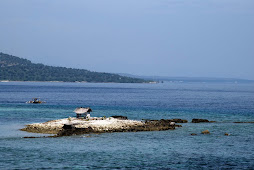
No comments:
Post a Comment